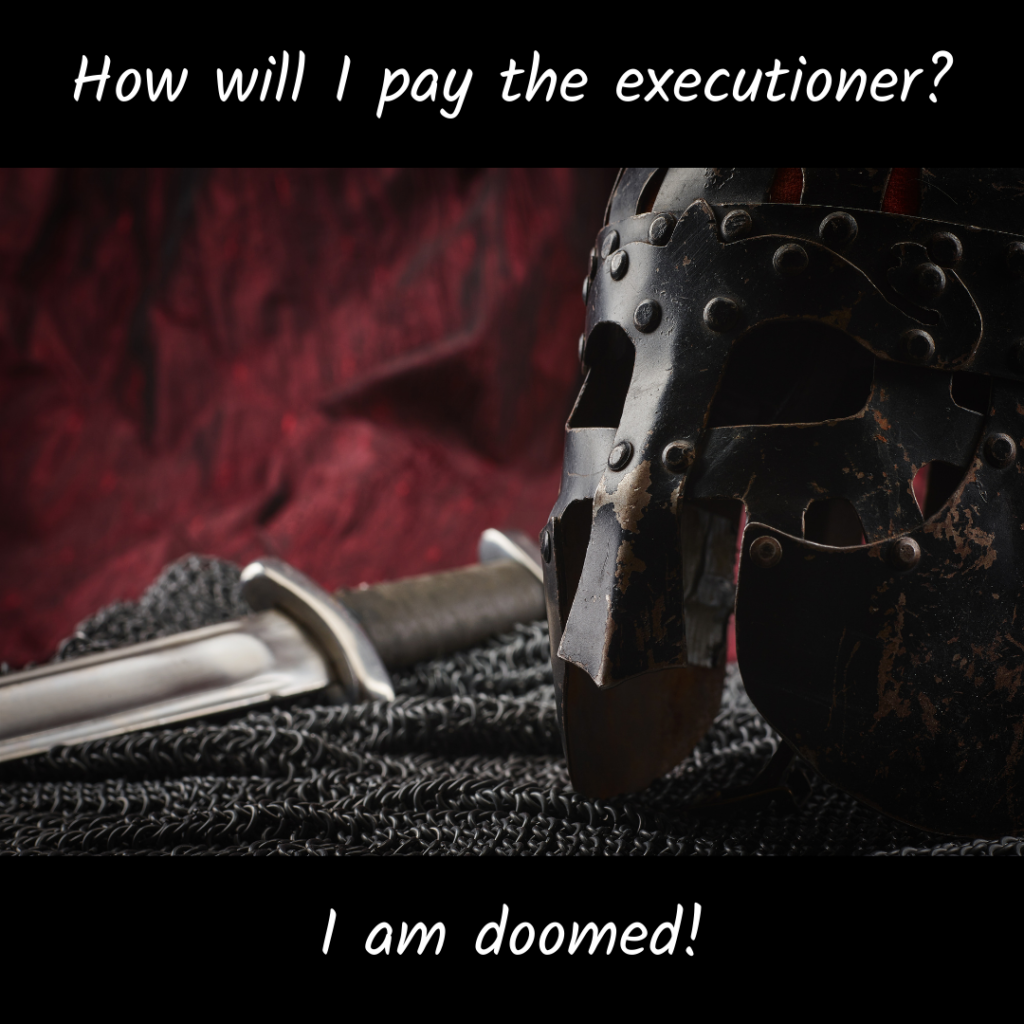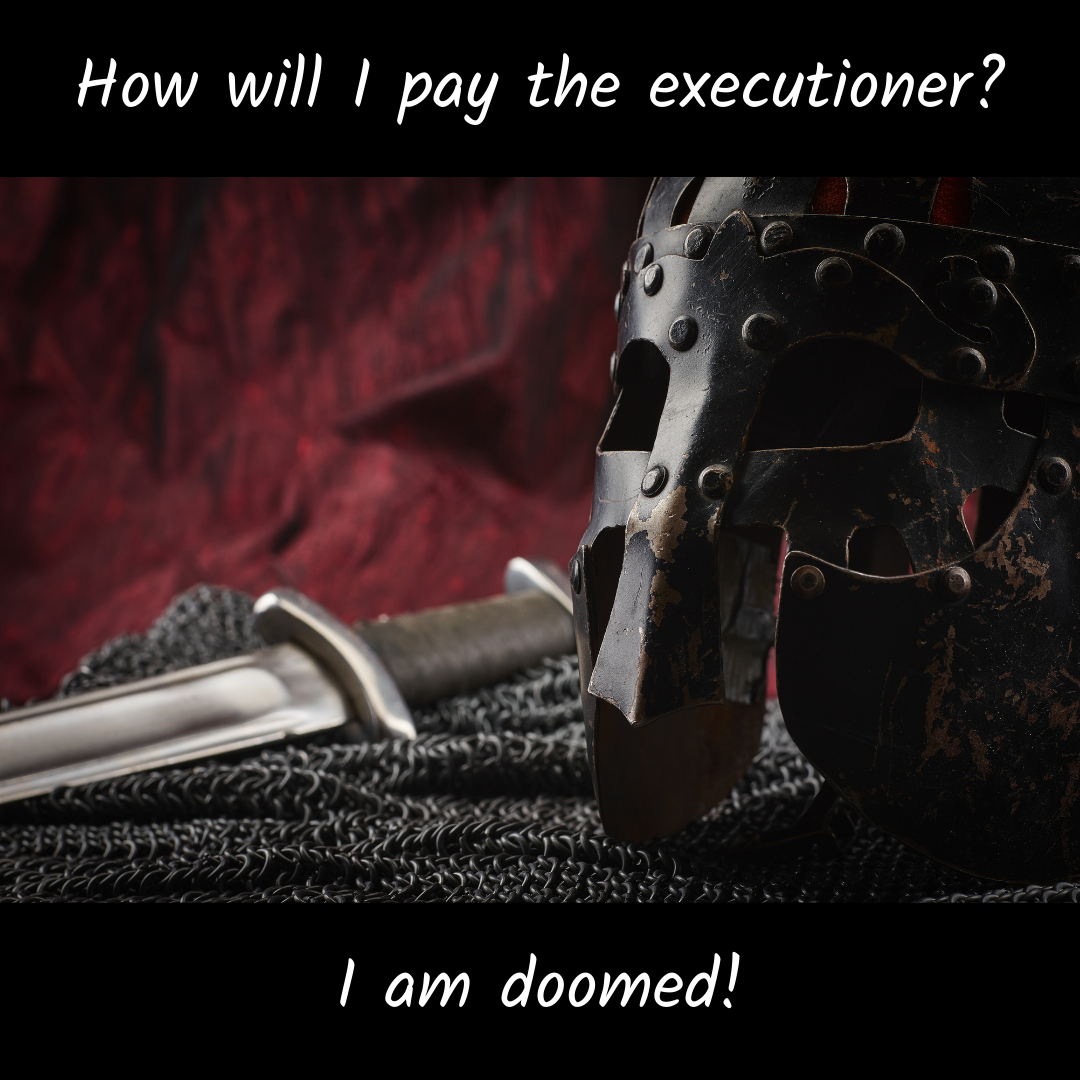Like most things in history, there is a wide variety of recorded information and even more speculation. I am probably on a watch list somewhere with how much research I had to do for The Executioner And The Lady. I learned more than I ever wanted to know about the subject of medieval punishments.
Soon you will meet Philip Galahad, the executioner, on a deeper level in Character Bios and learn more about his profession (brutal details will be left out). But there were instances in which the client a.k.a. accused must pay or chose to pay for their own execution. Some did so as a bribe for the event to be quick and painless, perhaps by the ax or sword being sharpened more than usual. Others paid because if they didn’t pay, theirs could be a more drawn-out tortured experience.

Philip never wanted the position as Executioner and looked for any opportunity to avoid it. Executioners also found other means of earning money. Some were less than admirable, and others held higher positions. Either way, executions were often treated with pomp & circumstance. These people were definitely lacking in good entertainment if an execution had to be advertised and drew large crowds.
In Philip’s case, he received a beautiful rare gray stallion as payment for the execution of a disgraced knight. You will meet the beautiful horse, Adrastos soon as well. If you haven’t read The Executioner And The Lady yet, it is a free book.
Below are some links with various information. I am only sharing a few links below for those who love to immerse themselves in all things history, but there are thesis documents and long college papers I have read through and am not including. MOST of my research is not so brutal, and the remaining stories in The Galahad Men series will venture into other medieval professions. The next book in this series will be about The Falconer. (Did you like my subtle teaser there?)
The typical Wikipedia, but I did find the information on executioners in Japan interesting.
A short read with small tidbits of info.
This one includes a link about an event in the sixteenth century, but still interesting.
I hope you enjoyed this one. (Is it ok to say enjoy regarding this subject? Maybe not. LOL)



